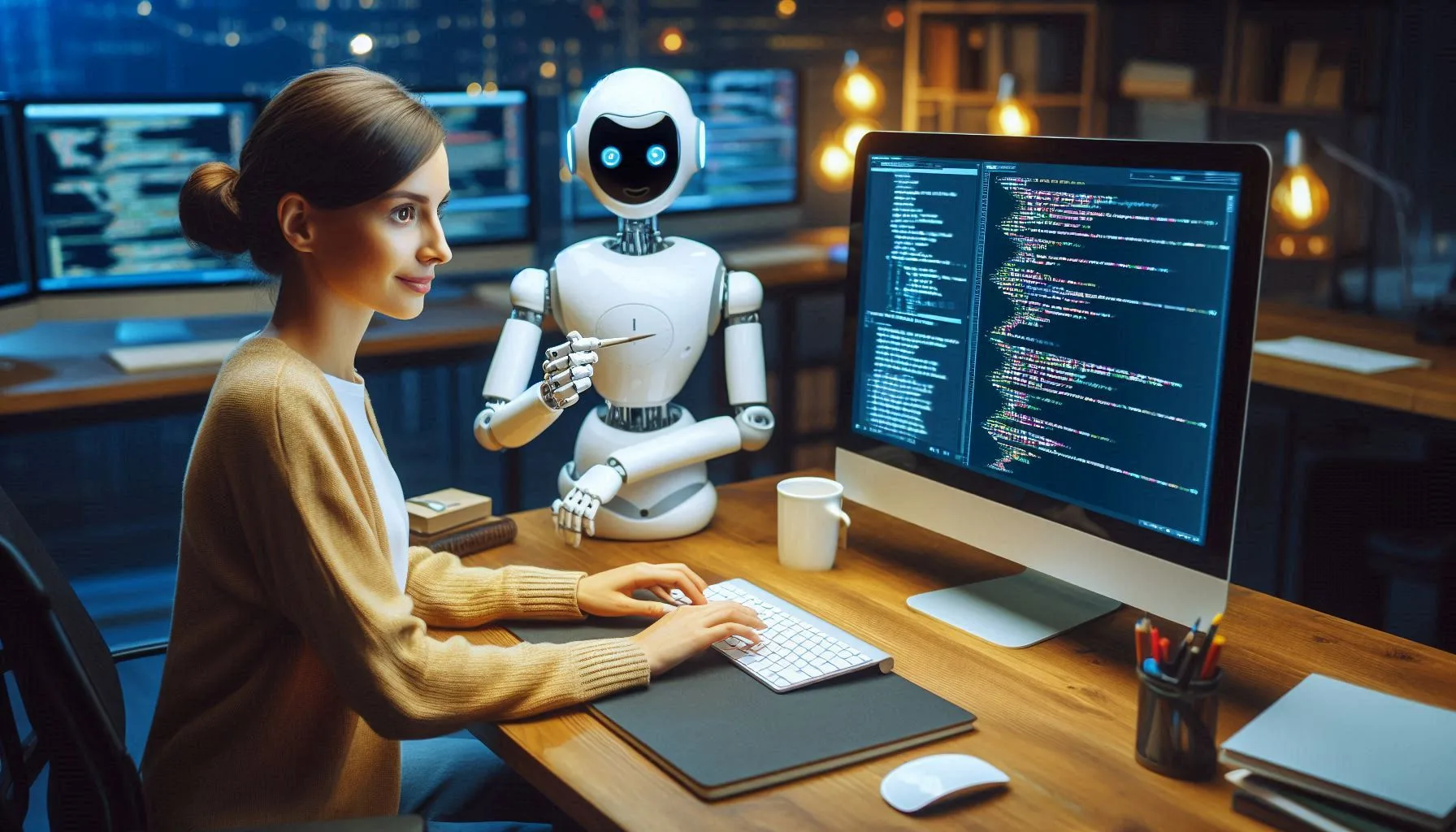AI assistants transform how we interact with technology. These tools learn from our daily actions. They adapt to our preferences continuously. The technology brings both opportunities and challenges.
How AI Learns From You
Personal Interaction Patterns
Modern AI assistants watch how you work. They notice your preferences quietly. They track your daily routines. This creates a personalized experience.
The AI remembers your choices. It studies your writing style. It learns your problem-solving approaches. Your digital experience becomes unique.
Behavioral Analysis
These systems analyze your decisions constantly. They identify your favorite workflows. They understand your productivity peaks. This knowledge shapes their suggestions.
The AI spots your common mistakes. It recognizes your strengths too. It builds a complete work profile. Your efficiency increases naturally.
Real-World Applications
Professional Work Enhancement
AI assistants transform office work dramatically. They learn email writing styles. They understand document formatting preferences. Your productivity soars quickly.
Meeting schedules become more efficient. Document creation speeds up significantly. Task management improves automatically. Work flows more smoothly.
Creative Tasks
Artists benefit from adaptive AI. The systems learn style preferences. They suggest relevant inspiration sources. Creative workflows become more efficient.
Musicians find matching sounds faster. Writers get better word suggestions. Designers see relevant color schemes. Creativity flows naturally.
Daily Organization
Personal scheduling becomes smarter. AI learns your time management style. It understands your priority patterns. Your day runs more smoothly.
Calendar management improves significantly. Task reminders become more relevant. Time allocation gets more efficient. Stress levels decrease naturally.
Privacy Implications
Data Collection Concerns
AI systems gather personal information constantly. They store work patterns extensively. They track daily routines closely. This raises privacy questions.
Users must understand data usage. Companies need clear policies. Privacy protection becomes crucial. Trust requires transparency.
Security Risks
Personal data needs strong protection. Hackers target AI systems regularly. Privacy breaches cause serious damage. Security measures must evolve.
Encryption becomes more important. Access controls need enhancement. Monitoring systems must improve. Protection stays crucial.
Benefits of Adaptive Learning
Increased Efficiency
AI assistants speed up routine tasks. They anticipate your needs better. They reduce repetitive work significantly. Your productivity increases naturally.
Work quality improves consistently. Error rates drop considerably. Complex tasks become manageable. Success rates climb steadily.
Personalized Experience
Every user gets unique assistance. The AI adapts to personal styles. It respects individual preferences. Satisfaction levels rise significantly.
Work environments become more comfortable. Tools feel more natural. Interaction becomes smoother. Users feel more supported.
Future Developments
Enhanced Learning Capabilities
AI systems will learn faster. They’ll understand context better. They’ll adapt more quickly. Their assistance will improve dramatically.
Pattern recognition will advance significantly. Prediction accuracy will increase. Response times will decrease. Performance will improve constantly.
Integration Possibilities
Different AI assistants will work together. They’ll share relevant information appropriately. They’ll coordinate their responses. Your experience will improve significantly.
Smart homes will become smarter. Office systems will coordinate better. Personal devices will sync seamlessly. Life becomes more convenient.
Managing AI Relationships
Setting Boundaries
Users must establish clear limits. Privacy settings need regular reviews. Data sharing requires careful consideration. Control remains essential.
Personal boundaries matter greatly. Professional limits need definition. Social aspects require attention. Balance becomes crucial.
Maintaining Control
Humans must stay in charge. AI suggestions need evaluation. Override options remain important. Control stays with users.
Decision-making remains human. AI provides support only. Critical thinking stays essential. Independence matters greatly.
Industry Impact
Workplace Evolution
Offices change dramatically. Workflows become more efficient. Collaboration improves significantly. Productivity increases naturally.
Job roles evolve continuously. Skills requirements change. Training needs increase. Adaptation becomes essential.
Economic Effects
Business efficiency improves significantly. Cost savings increase naturally. Competition becomes more intense. Markets evolve rapidly.
New opportunities emerge regularly. Traditional roles transform. Innovation accelerates significantly. Growth continues steadily.
Ethical Considerations
AI Dependence
Society must consider AI reliance carefully. Independence needs protection. Critical thinking remains essential. Balance stays crucial.
Skills preservation matters greatly. Human judgment stays important. Oversight remains necessary. Wisdom guides progress.
Social Impact
Communities face new challenges. Interaction patterns change. Communication evolves. Adaptation becomes necessary.
Social skills need protection. Human connections stay important. Community values remain essential. Balance guides development.
Future Challenges
Technical Hurdles
System limitations need attention. Processing power matters greatly. Storage capacity requires planning. Infrastructure must grow.
Integration challenges exist. Compatibility needs work. Performance requires optimization. Solutions need development.
Social Adaptation
People must adjust gradually. Learning curves need consideration. Support systems matter greatly. Patience becomes important.
Training programs need development. Resources require allocation. Understanding takes time. Progress happens steadily.
Moving Forward
Best Practices
Users should start slowly. They must understand their tools. They need clear boundaries. Success requires planning.
Regular reviews help greatly. Adjustments improve results. Learning continues always. Progress stays steady.
Future Outlook
AI assistants will improve continuously. Their impact grows steadily. Opportunities increase regularly. Preparation remains key.
Technology advances rapidly. Benefits grow significantly. Challenges need attention. Progress continues steadily.
Conclusion
Adaptive AI assistants transform our world. They bring great benefits. They raise important concerns. Balance remains crucial.
Success requires careful planning. Privacy needs protection. Control stays important. The future looks promising.




